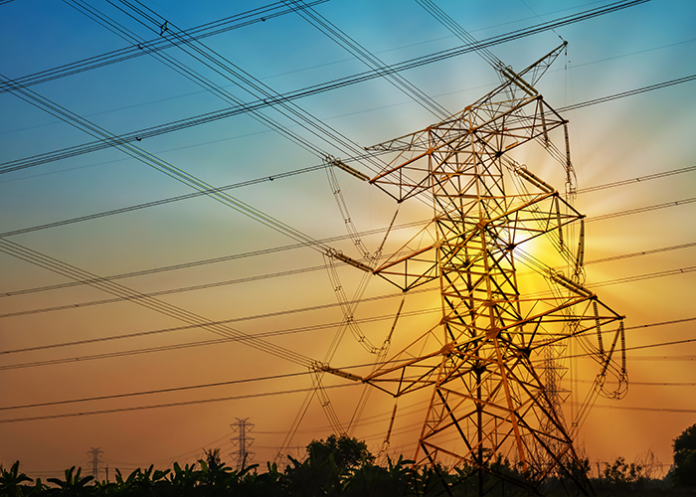A storm’s brewing at the Capitol over surging Kansas electricity rates, which are the highest in the region.
A coalition of high-volume electricity users —and some of the state’s biggest employers —is sounding alarm bells about rising electricity rates that it believes hurt business and stymie economic development.
The group, which includes Kansas brand names such as Goodyear, Spirit AeroSystems, Bombardier, and Cargill, pin the blame on a series of electricity rate increases that have cost consumers hundreds of millions of dollars.
The Kansas Industrial Users group is calling for utility reform and has taken its case to Gov. Jeff Colyer’s administration and the Kansas Legislature.
Legislation has already been filed that would cap the number of electricity rate increases to one per year per utility.
Another bill would require the Kansas Corporation Commission to report to the Legislature any time it approves raising electric rates greater than the consumer price index.
“Kansas has an energy problem,” said Overland Park lawyer Jim Zakoura, who represents the Kansas Industrial Users group. “Our rates are simply too high and not competitive with the region.”
Since 2012, the Kansas Corporation Commission has approved 36 rate increases, generating nearly $650 million combined for Westar Energy and KCP&L, the two biggest utilities serving Kansas.
Many of the rate increases were approved under a state law that allows utility companies to levy surcharges on a customer’s bill to recover the cost of property tax increases and complying with energy efficiency mandates.
Nevertheless, Kansans have seen their rates increase about 20 percent for all sectors, including residential, commercial and industrial, since 2012. The state now has higher electricity rates than all of its Midwestern neighbors.
Zakoura recently sent a nine-page letter to the Kansas Department of Commerce laying out various factors that contribute to rate increases approved by the corporation commission.
“In search of shareholder value, the Kansas investor-owned utilities have extracted significant wealth from Kansas families and businesses,” Zakoura wrote. “They have left the state as an uncompetitive and unattractive location for new industry.”
For instance, Kansans paid an average of 8.93 cents per kilowatt-hour in November 2011, according to the U.S. Energy Information Administration. That price rose to an estimated 10.63 cents per kilowatt-hour in November of last year.
At 10.63 cents, Kansas has higher electric rates than Missouri (9.93 cents per kilowatt-hour), Iowa (9 cents), Nebraska (9.16 cents) and Colorado (9.98 cents).
The price increase has been particularly stark for homeowners, who have seen about a 25 percent increase in electric rates from November 2011 to November 2017. Residential rates climbed to an estimated 13.32 cents per kilowatt-hour in November 2017 from 10.69 cents in November 2011.
Similarly, commercial businesses are paying about 19 percent more. Their rates rose to an estimated 10.53 cents per kilowatt-hour last November from 8.83 cents in November 2011, according to federal figures.
While rates are described in terms of cents, just one penny can mean millions of dollars an added expenses for a high-volume user.
Officials from Westar and KCP&L did not respond to questions emailed to them. The Kansas Corporation Commission issued this response:
“The Corporation Commission actively works with the Legislature to provide information and input on proposed bills affecting its regulation and jurisdiction.
“At the appropriate time, the KCC will participate in discussions and provide testimony related to the specific issues being raised. At this time, it would be premature to comment.”
Interim Kansas Commerce Secretary Bob North said his agency is aware of the rate disparity between Kansas and neighboring states.
The department, he said in a statement, is “working on facilitating meetings between utility companies and industry representatives to help mitigate those rates and put Kansas in the most competitive position possible.”
North added the rate issues are “very complex” and will take a lot of effort to resolve. “Kansas needs to be more competitive with surrounding states,” he said.
Among the factors driving rate increases, Zakoura argues, is the utility companies’ interest in spending on infrastructures such as power generating plants and transmission lines.
The corporation commission, he said, must take into account the utility’s cost of serving customers when it sets rates. As a result, the process “inordinately” rewards utility spending.
“Kansas investor-owned utilities have a financial incentive to spend money … whether the investment is necessary or not,” Zakoura wrote the state Commerce Department.
The coalition isn’t necessarily calling on the utilities to stop spending, but rather to maybe spread out their spending so any rate increases can be more easily absorbed by the ratepayers.
“There needs to be more scrutiny over whether all the spending is necessary,” said Andrew French, one of the lawyers representing the coalition.
The rate increases give some lawmakers pause, especially with the proposed merger of Westar and KCP&L parent company, Great Plains Energy.
“We need to be concerned about what the real outcome of that is going to be. Is it going to be beneficial to the ratepayers?” said state Sen. Gene Suellentrop, a Wichita Republican and a member of the Senate Utilities Committee. “I know they’re concerned about their stockholders. We are concerned also about the ratepayers.”
Suellentrop added, “We want to make sure we’re competitive so we can pull companies into the state.”
Republican state Sen. Julia Lynn of Olathe chairs the Senate Commerce Committee and says the high electricity rates put the state at a competitive disadvantage.
“It has become an issue when companies look at coming here or are already here, and they are noticing the rates are sky high,” she said.
Zakoura’s letter to the Kansas Commerce Department suggests that the corporation commission consider the state’s competitive position when deciding rate increases.
“At no point in the…rate making process is the most important question asked: ‘Are the electric rates, in total, comparable to the electric rates in surrounding states?’ ” he wrote.
“Without asking—and answering—this question, there is no assurance that Kansas residents are not paying inordinately high rates as compared to residents of neighboring states.”
Failing to consider Kansas’ position in the electricity market, Zakoura wrote, puts the state’s industrial and commercial companies at a “dramatic and continuing disadvantage.”














